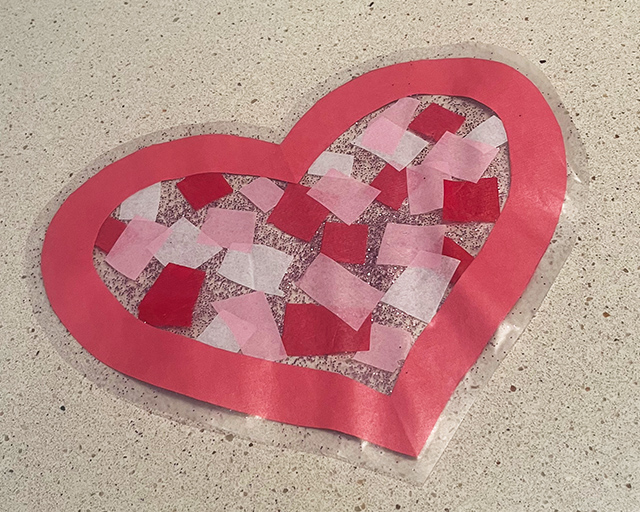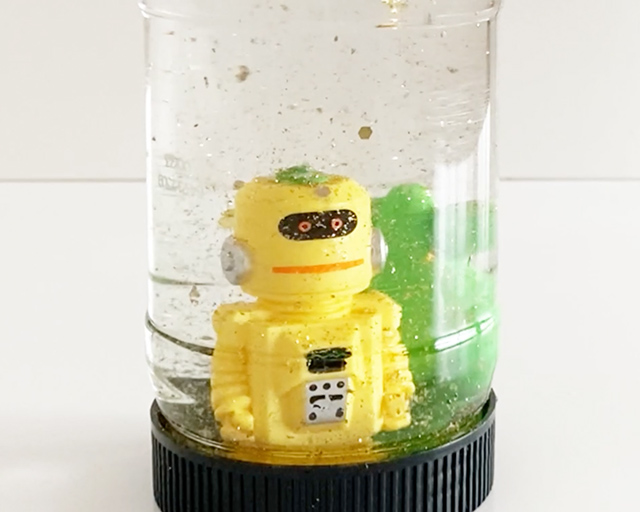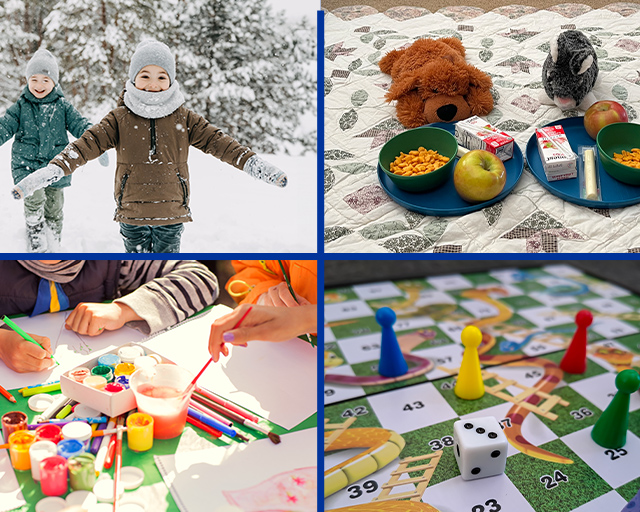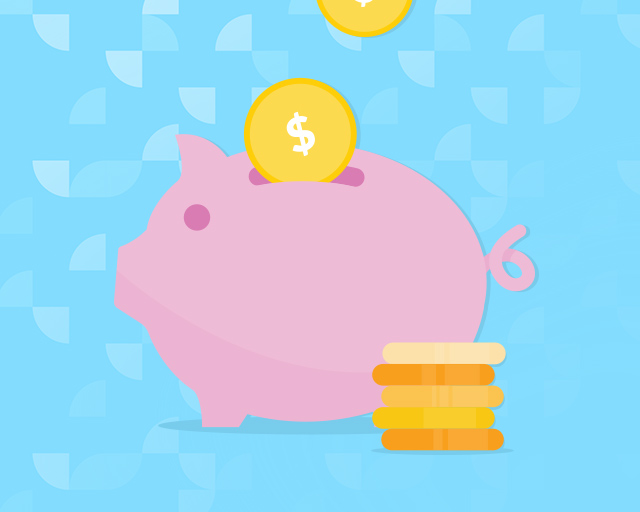

You want to teach your kids how to spend, save and plan wisely. And as they reach their ’tween and ’teen years, they’ll also be ready to earn their own money. By the time they become older teens, you can also teach them about income taxes and how credit works.
Ready to get started? Here are some basic lessons and activities to use.
By their ’tween years, your kids have a pretty good understanding of the value of money including how to spend and save it. As your kids reach this stage, you can take it further by helping them learn how to earn their own money, how to create a budget and how to be a smart shopper.
Here are a few areas to focus on, along with some activities to get you started.
1. how to earn money
At this age, most kids may not be old enough to work at a local store or restaurant. Explain that there are lots of easy ways for kids this age to make a few dollars right in their own home or neighborhood.
activities

brainstorming jobs
This is the age when kids can start babysitting or pet sitting. Dog walking, being in charge of a family garage sale, or offering lawn mowing services and doing yard work are other ways for your kids to start earning money. Help them brainstorm other ideas.

create signs
Once your kids decide what they want to do, you can help them create a sign offering their services and deliver them to family, friends and neighbors. Be sure to stick with people you know for safety.
2. creating a budget
One of the first steps you can help your kids take is creating a budget. Since it’s their first budget, it’s OK to keep it a simple weekly or monthly version.
Show them how to set it up so it includes income from their allowance or jobs, and any expenses they may have. Need help explaining parts of a budget? We have a great article about budgets here on our blog.
activities

savings account
Take your kids to the bank and help them open an account. Show them how to deposit their money and how to track their savings through bank statements.
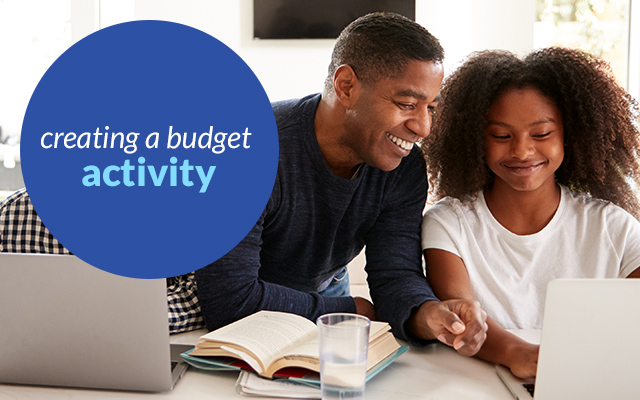
budget
Work with your kids to create a basic budget that shows how much money they have coming in vs. how much money they want to spend on snacks, gifts or toys (or other goodies they have their eyes on).
3. being a smart shopper
Being a smart shopper means not just finding the best value, but also knowing if you can afford something. Is this the best deal I can find?
activities
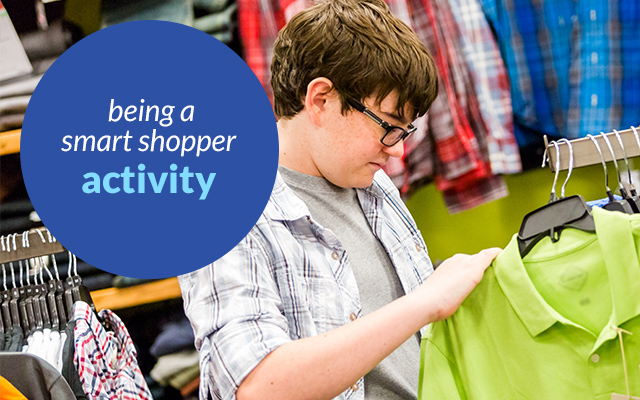
comparison shopping
Encourage your kids to look at different retailers to compare prices of more expensive things, like that new video game they want. Ask them if the price is something they think is worth buying or if there’s another way to get what they want (such as borrowing from a friend or buying the item used).

cutting coupons
Using coupons can make that special something more affordable. Work with your kids to find the best deals either online or in stores. Have your kids keep a collection of coupons for future use if they’re saving up to buy it later.
By the time your kids turn 16, they may have a driver’s license and be ready for their first “real” job. This is the perfect time to start a discussion with your kids about income tax. After all, they’ll be seeing that money come out of their very first paycheck! You may even need to help them fill out their first W4.
At this age, they may be curious about credit, so talk to them about how credit works and how it can be built for the future.
1. income tax
Your kid’s first paycheck is an exciting time! They may not know their hourly wage decreases partly due to income taxes. Talk to your kids about the difference between gross pay (before taxes) and net pay (what they take home).*
activities

pay stub
When they get that first pay stub, explain what each deduction means. Help them understand that income taxes pay for our roads, schools and other things that help our communities.*

family jobs
Encourage your kids to talk with family members about their jobs. They can ask them what their first job was and how they got it. It’s also a good time to learn about potential careers especially if there is a wide variety within your family.
2. what is credit?
A conversation with your kids about credit is a good discussion to have at this age, even though it may be too early for them to have a credit card or account. Explain that credit is when a credit company or bank lets you buy something now and pay for it over time, and that they use a person’s credit past as one of the factors to decide if they’ll approve them for credit now.
Oh, and don’t forget to give them a basic explanation of credit card interest. We won’t cover it in detail here, but this article from the Consumer Financial Protection Board has some good info here.
activities

how to build credit
One of the biggest lessons you can instill in your kids is the importance of making on-time payments on their future credit accounts. Doing this will get them on the road to building good credit.
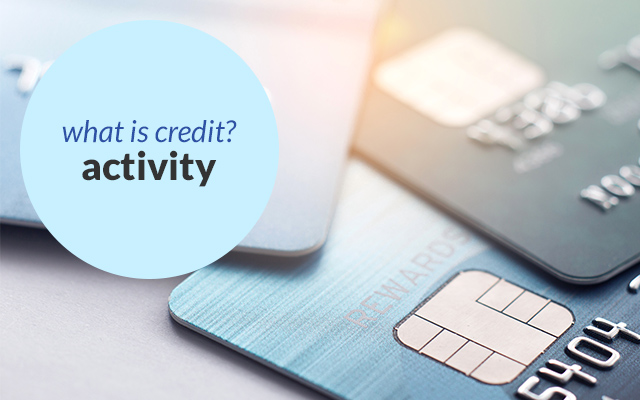
credit card solicitations
It seems we all get solicitations from various credit card companies. Put some aside and use them to show your kids the various options available in credit. Encourage your kids to compare annual fees and other features of one card versus another and decide which is the better deal in the long run.†
As your kids grow into adulthood and start out on their own, keep talking with them about money and offer advice if they ask for it. You could also share any lessons you’ve learned along the way.















